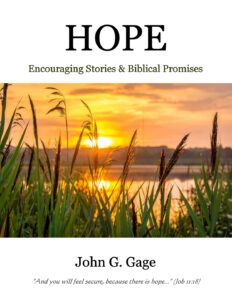Educational, Teacher Resources
TIP #3 FOR BIBLE TEACHERS
ASK THE RIGHT QUESTIONS
I prefer discussion to lecture, so I have found that asking an appropriate question to begin the lesson stirs imagination and interest. Just be sure to ask a question that requires more than a “yes” or “no” response. Here are some questions that require a thoughtful response:
- What is the purpose of prayer?
- What characteristics describe an effective soldier?
- Describe a situation when someone treated you with generosity?
- What are some things that cause us to be fearful?
Here are some questions that probably won’t lead to a great discussion:
- When was the last time you prayed?
- Were you ever in the army?
- Has anyone ever been generous to you?
- Have you ever been afraid?
It is always good to ask questions that can be answered from personal experience. People enjoy talking about themselves. Just be sensitive to someone’s story dragging on too long and be ready to bring the answers to a halt so that you can get to the main topic at hand.
The first question should lead to a verse or passage that will help answer the question from a Biblical perspective. For instance, after the question on prayer, attention could be drawn to James 5:16, “the effective prayer of a righteous man…” and after the question about an effective soldier, the key passage could be 2 Timothy 2:1-7. (FREE lessons on both of these topics can be found at www.johnggage.com/Bibles-study/ ).
The most important thing is to give the class ownership of the lesson by having them share their opinions or personal experience. Just be prepared to draw attention to the focal passage of scripture, using their experiences and opinions as a platform from which to make a main, Bible–based point. If someone shares something that is theologically inaccurate, lovingly but firmly correct them, using scripture as your reference point.
Inevitably, you will have someone ask a question that is so far off-topic or counter-intuitive that it will momentarily catch you off guard. NO question is a bad question. Even though a question may seem unusual to you, the very fact that it was asked means that the student is thinking, wants to be engaged in the discussion and has a genuine concern. Treat every person who asks a question or makes a comment with dignity and respect. Use those times as a teachable moment, and never put down a person asking that kind of question. Avoid making that person feel foolish for having asked something that seems off point. Here are a few suggestions on fielding bizarre questions:
- Respond graciously
- Respond with a scripture verse that answers that question
- Say, “That is a good question, but let’s answer this other question before we address yours.”
- Say, “That is a good question, but I need some time to find the best scriptural response. I will make a note of your question and will answer it next week.”
- Seek a deeper understanding of why that question was asked.
- Respond graciously but try to re-focus their attention on the point at hand, so as not to get too far off track.
- Say, “Ask the preacher.”
Just kidding on that last one, but treat every person with dignity and respect, and try to find some positive, teachable moment in every question that is asked. Sometimes the best response is “See me after class and we will discuss that.”
Don’t hesitate to use yourself as an example. For instance, “I too struggle with finding time to pray daily, but these are some steps I have taken to insure that this is a priority…”
Asking the right questions fosters involvement and ownership of the class. It also provides you, the teacher, an opportunity to make the lesson applicable to real life situations. As students respond to well- constructed questions, they are learning the joy of discovering Biblical application to commonly shared situations.










